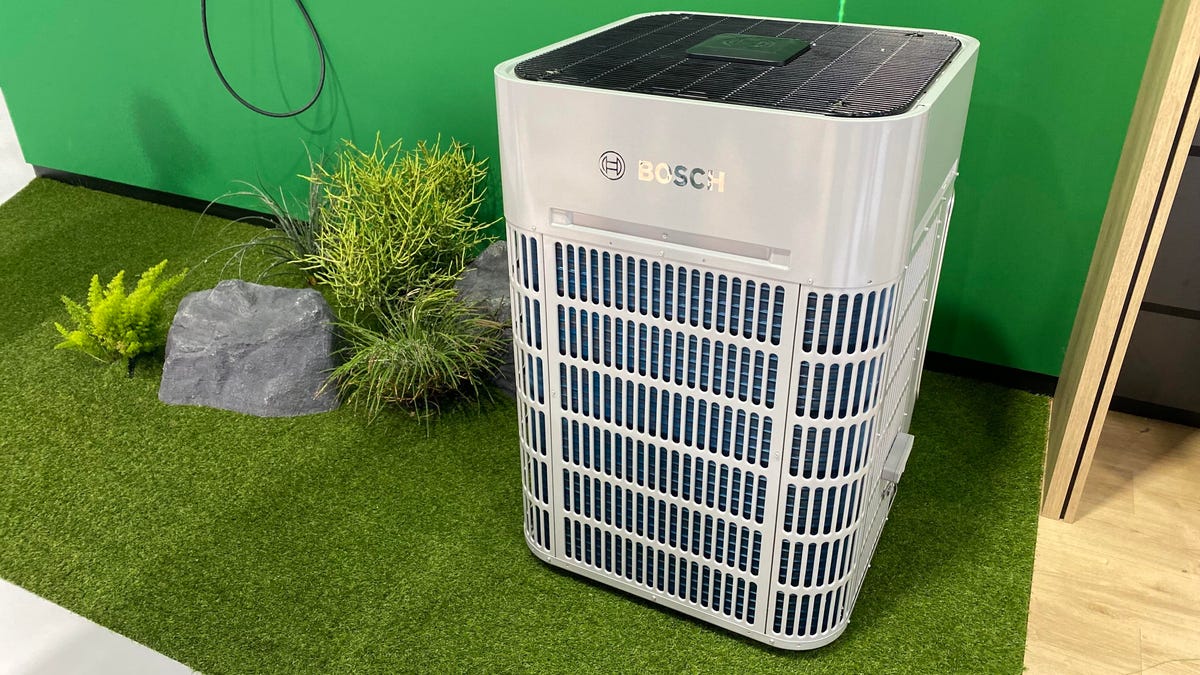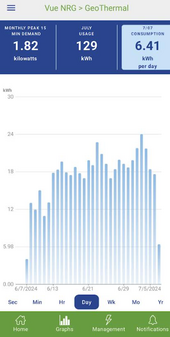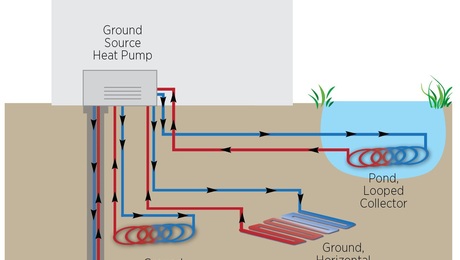My geothermal, solar PV, solar hot water journey: 2200sf (heated), well insulated, single story home.
I installed my own geothermal system 13 years ago - a 2 ton ClimateMaster two stage compressor, ECM blower motor, with a hot water generator, heating an 80 SS gal tank, which preheated our 80 gal SS solar hot water tank. The solar hot water tank is heated by two 3 x 10 solar hot water 'panels' on the roof. I live in north Louisisana, so probably close to the OP's heating/cooling needs. For the first 11 1/2 years, I used an open loop system that captured the output of the geo cooling/heating water into an 8,000 gal tank which could be utilized for irrigation, or pumped back into the house for domestic needs.
Two years ago, I changed from open source to closed cooling/heating loop. I installed 1600lf of 3/4" geo pipe, installed in about 550' of trench. Depth of trench was between 3 1/2 and 6' deep. The system has performed as expected with both loop types.
I bought the most efficient, and best (I thought) geo unit that my local preferred distributor had access to, expecting that it would last 15-20 years. Well, about 3 years in, the ECM motor went out. About 7 years in, one of the computer boards went out. Two years ago, I started having cooling issues, and had a leak repaired in the evap coil, replaced the reversing valve, expansion valve and air dryer. Well, that fixed the cooling issue for the next few months until the beginning of the heating system, and we rely mostly on wood heater. So, fast forward to the next summer & cooling was still an issue - brought in a different A/C repairman, and he diagnosed a bad/failing compressor. A new compressor installed was estimated at better than $2k - no thanks! After talking with my HVAC distributor who has 30+ years of experience, he admitted to me that virtually all of these newer hi performance/super efficient systems have 'issues', which is what several techs have also told me. They simply do not last like they used to.
Well, I decided to go barebones on my replacement unit - no 2 stage compressor, variable speed blower motor or hot water generator. My original ClimateMaster 2 ton unit cost me about $3200, and the replacement unit, a more simple Bosch 2 1/2 ton unit, cost about the same. I know the new unit is not as efficient, but shit, I am tired having issues with the top of the line stuff. Kinda like everything these days - cars, fridges, washers, dryers, tv's, or anything with all the bells, whistles and MULTIPLE FRICKIN computer boards.
Anyhow, I had to change my plenum adapter to fit the outlet of the Bosch, and re-route my loop lines, but all works well with the new unit, with no issues so far. Since the blower motor was a regular pcm single speed blower (wide open), I did double insulate the cabinet, and used some external baffling and insulation to reduce the noise. Also installed a compressor soft start.
I have 3 different solar arrays that total 10.4kw, with a Schneider XW6048 inverter. For the household, we use average of 1000kwh per month. We are net metered, and produce approximately the same per month (average). We only pay the minimum grid charge (plus their storm restoration charges), of about $25/month.
To the OP, I am not an expert, but I would think you could probably use 2 two ton geo units on your 4,000 sf home (location, insulation, orientation, etc. would also factor into your requirements). Each 2 ton unit could use basically what I did on my loop piping, or vertical wells, but I am not familiar with those. For your info in planning, my geo unit runs at about 2200 watts. If you would like to talk about some of this, just pm me.
Here are a couple pictures, with the original ClimatMaster first. As the Bosch unit was shorter, I had to build a box for the new unit to sit on.
Oh, once you get your geo system figured out, installing one is not that terribly difficult for a handy DIY'er. The main system is of course in one cabinet and precharged, ready to go. Pretty easy to connect up the loop pump as well, only the special loop piping needs something unusual - manifolds and adapters connected with a pipe fusion tool.





![DSCN4398[1].JPG](/data/attachments/227/227120-acec1800c959cef86480616814f53eaf.jpg)
![DSCN4416[1].JPG](/data/attachments/227/227121-7d77b0a5e88e16439abd2843f6cd8adc.jpg)
![DSCN4400[1].JPG](/data/attachments/227/227122-e899a874b66c6e94334e82c4e52c358f.jpg)
